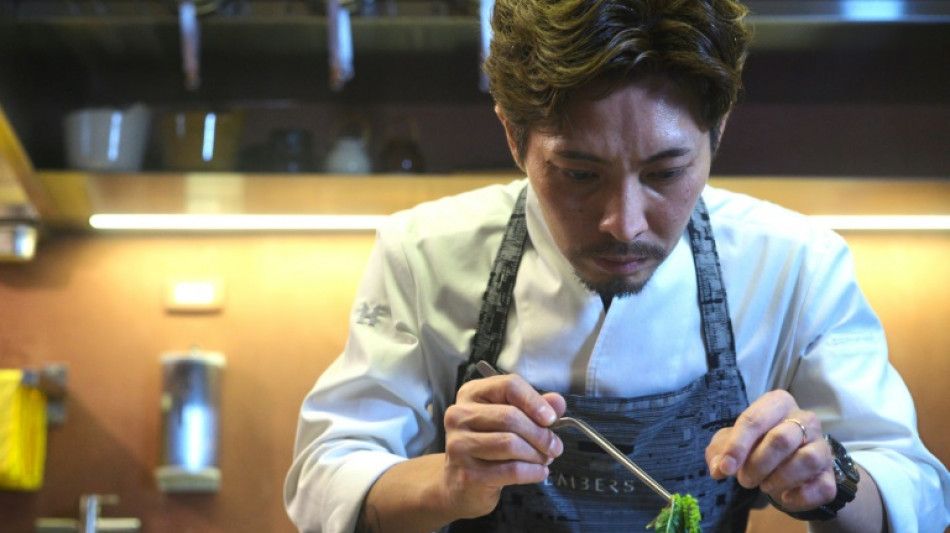
RBGPF
61.2800


Preparing for a state banquet reflecting the self-ruled island's unique history, Taiwanese chef Wes Kuo places delicate vegetable fronds around sauces inspired by the cuisines of its five major ethnic groups.
The dish will be part of an eight-course feast full of symbolism, to be served after Lai Ching-te is sworn in as president on Monday against a backdrop of increasing pressure from neighbouring China.
Beijing claims Taiwan as part of its territory, but a survey last year by the island's National Chengchi University found less than three percent identified themselves as Chinese -- down from a quarter in 1992.
Kuo said the banquet created by Taiwanese chefs and food critics mirrors the island's identity.
"We put together Taiwan's seasonal produce on one plate, paired with five different sauces, to represent the flavour of each ethnic group," Kuo told AFP, as he practised the dish in his Taipei restaurant, Embers.
The sauces paint a vivid picture.
Fermented tofu paste -- often found in Taiwanese dishes -- sits alongside a kumquat concoction popular with Taiwan's Hakka community.
There is also a satay sauce similar to Southeast Asian cuisines, with a spot of chilli for a kick.
A finishing touch are crystal-clear drops of Te'nas -- made with sea salt, chilli and water -- which comes from Taiwan's Amis people.
The sauces "blend very well when eaten together," Kuo said.
Food critic Jewel Tsai said the banquet tells the story of Taiwan and its most important elements of "freedom, democracy and diversity".
The dinner will be held in Tainan, where Lai previously served as mayor.
Dignitaries expected to attend include former officials from Taiwan's key backer, the United States, as well as leaders from its dwindling list of allies.
- 'Political symbol' -
Long before Chinese nationalists fled to Taiwan after the Communist Party gained control of China in 1949, the island's cultural identity had been shaped over centuries by Indigenous peoples, as well as Chinese, European and Japanese rulers.
As the island moved from autocracy to democracy by the 1990s, the population -- which had been educated under a Chinese curriculum -- began to develop a distinct Taiwanese identity.
"Many ordinary people felt that they were suppressed or repressed in the past, so if they can show the food of common people, this will be connected with the local identity," Chen Yu-jen, a Taiwan food historian, told AFP.
"Taiwanese people are very confident in their own food and culture... it has developed into a political symbol."
Lai's inauguration menu will also feature a chicken soup common in small eateries, as well as the island's signature bubble milk tea -- a drink usually loaded with milk, sugar and tapioca pearls.
A fish dish of yellowfin bream will be served with an aromatic tana herb and pepper sauce, drawn from traditional Indigenous cooking.
Lai himself has requested a sweet potato and kumquat roll from a favourite rural restaurant in his northern birthplace of Wanli District.
"He likes sweet food, and it just suits his taste," said Tung Shih-min, owner of Jiu Zhuang Mei Shi restaurant, as his staff prepared a thousand rolls.
Lai stopped at Tung's restaurant earlier this month -- autographing bottles of Taiwan-made sorghum alcohol with commemorative labels featuring himself and his running mate, incoming vice president Hsiao Bi-khim.
Chef Kuo said including everyday street snacks like the sweet roll in the fine dining banquet represented Taiwan's acceptance of different cultures and ways of life.
"I think this is the most important value of democracy -- no exclusivity."
Y.Ishikawa--JT